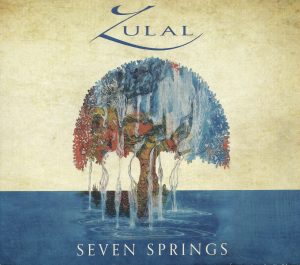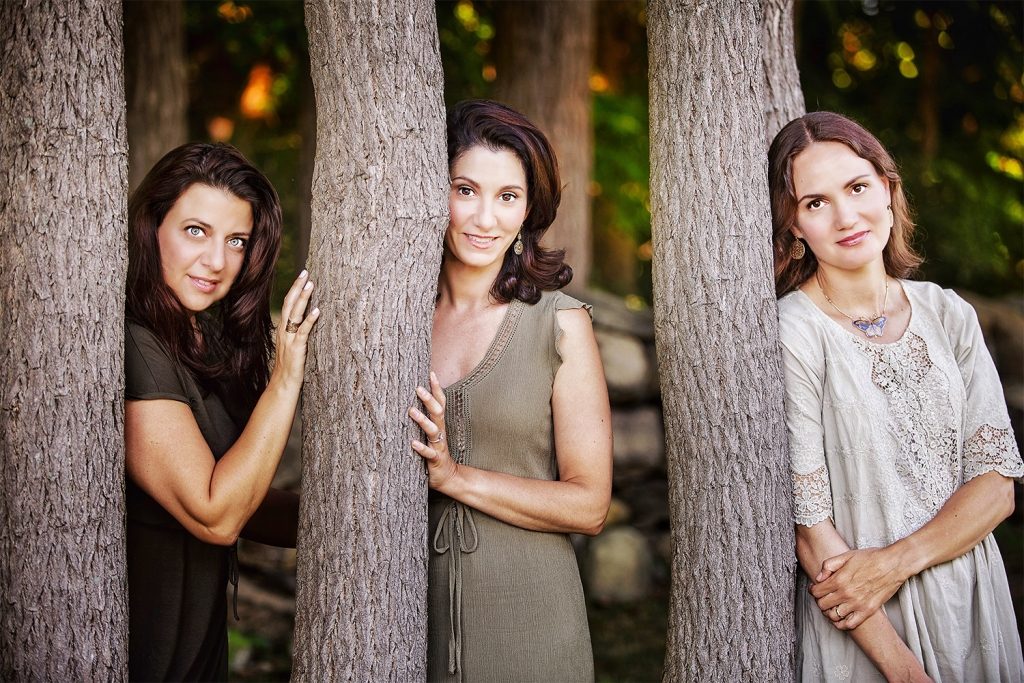“Seven Springs”
Artist: Zulal
Label: CD Baby
Original Release Date: Nov. 30, 2015

Zulal (limpid or clear in Armenian) is an a cappella trio founded in 2002 from New York consisting of Teni Apelian, Yeraz Markarian, and Anaïs Tekerian. Each vocalist lends her distinct vocal style and timbre to create the rich harmonies that are exclusive to Zulal. In their 15 years of existence, they have presented their art to numerous audiences in the United States, Canada, Germany, and Armenia.
“Seven Springs,” Zulal’s third album, consists of 15 tracks of mostly folk music from various regions of Armenia, including Vaspurakan, Javakhk, Mokk, Balahovit, and Taron, some of the songs transcribed by Komitas and Tatul Altunian.
The album produced in 2015, the Centennial year of the Armenian Genocide, acknowledges this fact in the liner notes: “And one hundred springs ago was when Armenians were forced to leave their historic villages and enter into a new era of their history,” yet does not dwell on it. Rather, the album transcends the tragedy with a progressive approach, as is eloquently stated: “We collect our melodies, looking backward in order to look forward, and cast them into a reservoir of hope that wells up like spring water, inexhaustible.”
In this album you will hear songs of labor, longing, and love. All the tracks are chosen with great care and include some of my favorite melodies. The arrangements are truly unique and tastefully done, creating a colorful tapestry. Their arrangement of “Nino,” a folk song from Van, weaves together an interesting play of time signatures and tempos. “Mokats Harsner,” masterfully mixes two variations of the same song and even includes a homage to an earlier jazz interpretation by Tatevik Hovhannisian. “Zepiur Barev Tar” by Gusan Havasi (Armenak Markosian 1896-1978), once a song of praise for a Soviet republic, has been transformed to an ode to the ancestral homeland. Dance songs “Tamzara” and “Ha Nina” make you want to put on your dancing trekhs and cut a gorg.
The one exception to this almost exclusively folk album is the contemporary composition “Manchs” (My Son) by singer/songwriter Armen Movsisian (b. 1964). One might wonder, How does a contemporary track fit in with songs that are decades if not centuries old? The answer: perfectly. Movsisian’s song stands on par with all the other musical gems in this album and is timeless in both meaning and melody.
There is something beautiful to say about each track, so I will leave it to the readers to make those discoveries for themselves. Aside from a few minor inconsistencies in pronunciation and transliteration (primarily because of differences in Eastern and Western Armenian pronunciation and the peculiarities of Soviet-Armenian orthography), this is a flawless album beautifully designed by Mher Vahakn and made complete with original artwork by Kevork Mourad.

The CD is available for purchase at cdrama.com, cdbaby.com or can be downloaded from Apple iTunes.
Zulal draws from the past to look toward the future. And if more recordings are produced like “Seven Springs,” then we have a bright future to look forward to.
A version of this review first appeared in the Aug. 2017 issue of Armenian Arts.


I’ve got this CD (and the earlier ones). It is in my car and plays non-stop. Beautiful!
I also recommend searching Zulal Trio on Yutube. They are truly amazing on stage. You can see their beautiful expressions and enjoy the beautiful re-arrangements of our songs.
A truly unique approach to our folk répertoire
Headed about the CD and a comment, I am tempted, will place an order.